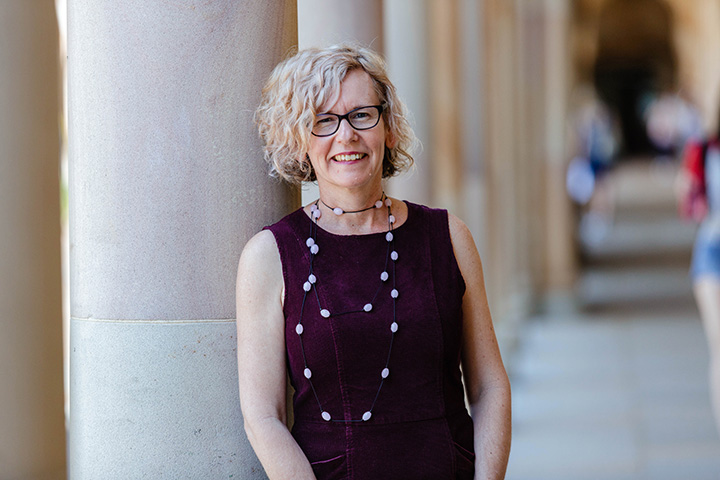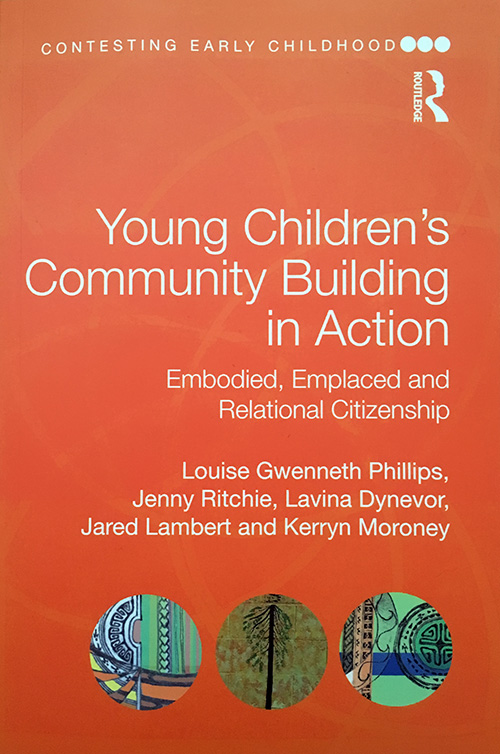Media Releases
Examining citizenship and community for young children
Media Releases
What can citizenship mean for young children? How do Indigenous cultural values shape interactions?
 (Pictured: Dr Louise Phillips)
(Pictured: Dr Louise Phillips)
Associate Professor of Education at James Cook University (JCU) in Singapore Dr Louise Phillips is the co-author of “Young Children's Community Building in Action: Embodied, Emplaced and Relational Citizenship,” a newly published book that helps to develop and expand on the concepts of citizenship and community in relation to young children.
This book is the product of the research project “Civic Action and Learning with Young Children: Comparing Approaches in New Zealand, Australia and the United States,” which is funded by the US Spencer Foundation. Given that it is a highly prestigious education grant with only a 3% success rate, Dr Phillips is one of only eight Australians to be given a Spencer Foundation major grant.
With a background spanning more than 30 years in working with children across various settings — along with an interest in storytelling, children’s rights and citizenship — Dr Phillips is able to impart her extensive knowledge and experience to bring indigenous and children's perspectives to the notion of citizenship.
“I think this book is important because these two groups (indigenous peoples and children) would be regarded by many as the most marginalised groups — who have been actively excluded from western constructions of citizenship,” said Dr Phillips.

The book offers guidance for researchers and students of early childhood education and care — by exploring what young children’s citizenship learning and action looks like in practice, and how it may vary within and across communities. What’s more, the text offers a pedagogical framework for community building informed by Indigenous cultural values and worldviews – drawing from a legacy of thousands of years of peaceful cooperative society, however rarely given consideration in mainstream dialogues.
Students in JCU’s education courses, in particular, may find interesting the way the book shares how discourses of children and childhood have shaped the lived experience for Aboriginal children and their families, along with the extensive vignettes of the lived experience of Aboriginal early childhood education to illustrate Aboriginal worldviews.
Additionally, readers will be able to find examples of how practices guided by Aboriginal and Māori values support and nurture the personal and social development of children as individuals, and as citizens in a wider community.
Commenting on what she found most interesting from the research, Dr Phillips said that she was fascinated by “how Aboriginal collectivist ontology is instilled right from infancy and offers foundations for peaceful cooperative society.” This means that the idea of people thinking about themselves in terms of their relationships with other people and their community is ingrained during early childhood, allowing individuals to grow up becoming active contributors to community life.
Dr Phillips adds, “Relatedness and togetherness are key values in many Indigenous world views.”
Find out more information about our Education courses here.
Check out Dr Phillips’s Research Portfolio here.
You may find the book “Young Children's Community Building in Action: Embodied, Emplaced and Relational Citizenship” here.
Contacts
Dr Louise Phillips louise.phillips@jcu.edu.au
Media: Pinky Sibal pinky.sibal@jcu.edu.au